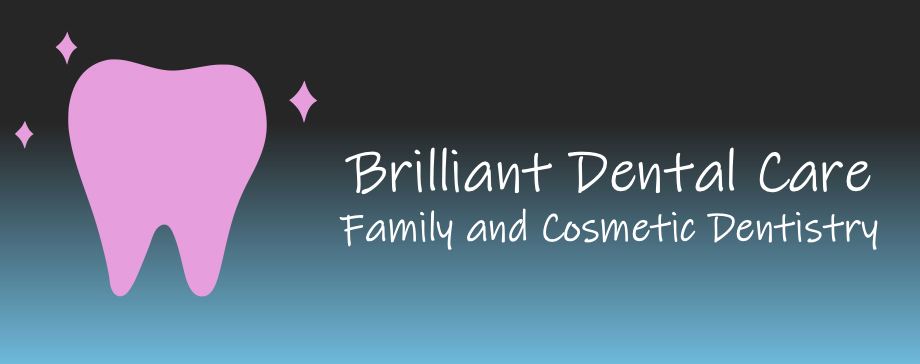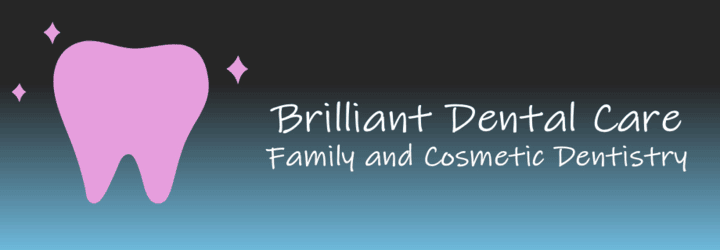Daily brushing and flossing are excellent ways to care for your gums and teeth. You will find that a daily routine will lower the chance of dental problems like tooth decay and gingivitis later in life. Proper gum and teeth care are the best preventive measures you can do at home.
Gingivitis is an inflammation of the gums. It occurs when plaque surrounds the teeth. Bacteria gets into the gum tissue and causes irritation, inflammation, and sometimes bleeding of the gums. Gingivitis is the easiest form of gum disease to treat because it is still in the initial stages. Regular dental checkups and cleaning reduce the chance of developing the disease. Your dental hygienist will show you the proper way to care for your teeth and gums with brushing and flossing.
Sensitive teeth usually occur because the gums have receded. The underlying dentin is exposed to the food and liquids you put in your mouth, affecting sensitive nerves in your teeth. Various dental procedures, toothpastes and gels are available to provide relief. Be sure to let the dentist know if you have sensitive teeth. In some cases, the dentist may find other reasons that can be taken care of and lessen the sensitivity and discomfort.
Silver fillings, also referred to as amalgam, are a metal alloy that has been used for fillings for dozens of years. The metal filling endures both hot and cold food and beverages by expanding and contracting as needed. This reaction significantly reduces the amount of bacteria penetrating the tooth. That helps keep the tooth strong and healthy.
White fillings, or composites, are usually made with glass or plastic polymers. They are generally regarded as cosmetic fillings because the cavity is filled with a substance the color of your actual tooth instead of silver or gray material. Shaped and designed to fit tightly into the drilled area, it is made from a resin material to look and feel like your other natural teeth.
Periodontal disease often gives no indication that something is wrong until it attacks and enters the gums. The early stage is known as gingivitis and is caused by bacteria that surrounds the gums in the form of plaque. The first noticeable symptoms include inflamed, irritated gums that often bleed during even gentle brushing. Periodontal disease must be treated quickly and properly to avoid further complications, including:
- Abscesses
- Tooth Pain
- Gum Sensitivity to Acidic Foods
- Bad Breath
- Gum Recession
- Tooth Loss
Periodontal Disease is a chronic condition. Your dentist will recommend you start treatment as soon as possible, which includes a series of procedures such as:
- Periodontal cleanings.
- Root scaling and planing.
- Local antibiotics.
- Laser treatment.
Dental implants are man-made replacements for missing teeth and roots. They are screw-like objects made from titanium. The dentist inserts them under the gum and into the lower or upper jawbone. The bone and implant fuse together within a few months, providing an anchor where a newly constructed tooth is placed. Most patients report only a small amount of discomfort during the entire process.
Dental implants:
- are a permanent replacement for missing teeth.
- look and work like natural teeth so you can eat the foods you enjoy.
- do not require a bridge to support or anchor the replacement.
- are cleaned with your other teeth by your dentist during routine hygiene visits.
- reduce the risk of periodontal disease, tooth movement, and bone and tooth loss.
- replace the need for a removable partial or full denture.
Dental treatment continues to expand with new technology. As a result, dental implants are available for more people than ever. Exceptions include patients with heart disease, severe osteoporosis, and chronic illness.
Allow 3 to 4 visits for a typical dental implant procedure. During the first visit, x-rays will be taken. You’ll also have an impression taken for a surgical guide as well as a temporary prosthesis to cover the Implant. The dentist will explain the procedure prior to the appointment so you understand each step.
The implant is placed on the second visit. The dentist will apply local anesthesia to the area before making a small incision and placing the implant into the jawbone. The area will be stitched up. You might encounter some minor pain during this visit.
The third visit is usually scheduled 3 months after the implant is placed. It involves the final dimensions for the porcelain crown that will fit over the implant. The fourth visit takes care of the final fitting to be sure the bite is right. The crown is fastened to the post.
The implant can last 30 years or more when the patient flosses and brushes regularly and keeps regular cleaning and checkup appointments with the dentist.
There is a wide variety of cosmetic dentistry procedures to improve your smile, including tooth whitening, porcelain veneers, bonding, and porcelain crowns.
Find the beautiful, healthy smile you’ve been looking for with safe, cost-effective tooth whitening. Fluoride is included in the mixture to reduce gum and tooth sensitivity. The process is monitored by the dentist after a comprehensive exam and cleaning shows it is safe for you. Whitening has the ability to last for years if treated correctly. Your teeth can still be stained by tobacco, cola, wine, coffee and tea.
Thin pieces of porcelain placed directly on the teeth are known as porcelain veneers. In many cases, the process requires just two visits! Veneers produce a brighter, whiter smile by:
- Changing tooth shape, color, and size.
- Repairing fractured teeth.
- Covering discolored teeth.
- Making crooked teeth appear straight.
Cost-effective bonding fills gaps in front of the teeth and are also used to change a tooth’s color to a more natural shade. It only takes a few hours to improve your smile! Like whitening, the brilliance can lose its shine when subjected to stains from things like tobacco, coffee, tea, cola and wine.
Porcelain crowns cover a tooth that has been damaged or lost its natural beauty. Two visits are usually all that is needed for the crown to be measured, designed, and fit for a beautiful smile.
Please give us a call at 206-207-0200 to discuss the procedures and options available to our patients. Each dentist and staff member at our clinic wants you to have a perfect smile! Together we can work out a customized treatment plan that meets your needs.
SCHEDULE AN APPOINTMENT FOR A CONSULTATION.

